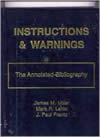All Articles
Accident Investigation & Reconstruction
Human Factors
Accident Prevention & Safety
Injury
Addiction Issues & Substance Abuse
Investigation & Surveillance
Animals
Legal Issues
Audio Forensics
Logistics - Reverse Logistics
Banking
Medical Records Review
Blockchain Information
Metallurgy
Boating
Neuropsychology
Chemical Industry
Nonprofit Organizations
Computers
OSHA
Corrosion
Pain Management
Criminology
Pharmacy & Pharmacology
Design
Plastic / Reconstructive / Cosmetic Surgery
Domestic Violence
Police Practices & Procedures
Economics
Psychiatry
Elder Abuse
Psychology
Employment
Public Speaking
Energy - Utilities
Real Estate
Environment
Risk Management
Exercise & Fitness
Securities
Feng Shui
Sexual Abuse - Molestation - Harassment
Fires & Explosions
Speech-Language Pathology
Foot / Ankle Surgery
Taxation
Foreign Affairs - Geopolitics
Toxicology
Healthcare Facilities - Hospitals
Underwriting
More...

FEATURED ARTICLES BY DR. GERARD MACRI
Featured articles by Dr. Gerard Macri are shown together on this page and the following pages, if any.
All Articles
Archaeology - Archeology
HVAC - Heating, Ventilation, Air Conditioning
Bacteria - Fungus - Mold Investigation
Industrial Hygiene and Safety
Banking
Injury
Blockchain Information
International Trade
Boating
Investigation & Surveillance
Chemical Industry
Land Mapping - Surveying - Zoning
Child Witch Phenomenon
Linguistics
Construction
Logistics - Reverse Logistics
Counseling
Manufacturing
Crime Scene Investigation
Neuropsychology
Damages
Nursing
Documentation Examination & Analysis
OSHA
Economics
Pain Management
Education & Schools
Pharmacy & Pharmacology
Elevators - Escalator - Automatic Doors
Plants & Trees
Engineering
Plastic / Reconstructive / Cosmetic Surgery
Engines (Combustion - Diesel)
Pools and Spas (Recreational)
Enterprise Resource Planning (ERP)
Professional Malpractice
Environment
Psychiatry
Family Issues
Real Estate
Forensic Psychiatry
Recreation & Sports
Gems & Jewelry
Sexual Abuse - Molestation - Harassment
Healthcare
Terrorism - Homeland Security
Healthcare Facilities - Hospitals
Underwriting
Human Factors
Yoga
More...
There are no active articles by Dr. Gerard Macri at this time. Please use the search bar, try another category, or contact us.
Search articles by title, description, author etc.
Sort Featured Articles
Featured resources
Government Contracts in Plain...
by Christoph Mlinarchik
Get Your Construction Business To...
by George Hedley
Instructions and Warnings: The...
by James M. Miller, Mark R. Lehto & J. Paul Frantz
Follow us










